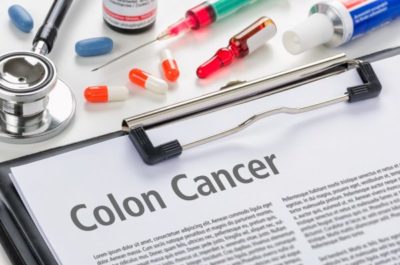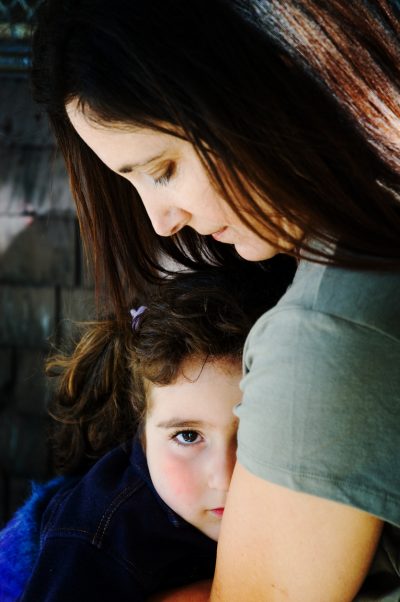The Lady, the Lesson, and the Cancer in a Mini-Case Study of Colorectal Cancer
A little tale that serves as a mini-case study on human emotions opens this week’s blog. For you, this is a unique tale. Fictionalized though it is, it represents a significant fact. A colorectal cancer diagnosis is not always fatal unless you wait too long to receive treatment. The majority of colorectal cases that we have met recently, regrettably, have been waiting too long for a suitable diagnosis.

CCD Orlando: If you are diagnosed with colorectal cancer, it is not a death sentence unless you wait too long.
A sunny cemetery road greets us as Gina, a mother, walks with her 5-year-old daughter, Laura. After Gina’s mother, 53, passed away unexpectedly, they are leaving her funeral.
Gina is holding her little girl’s hand solemnly. However, six-year-old Laura is bouncing along the sidewalk, fascinated by everything that has happened to her.
The enemy without honor or dignity is colorectal cancer
Questions like “How can grandma breathe?” had been asked of the mother. And now Gina listened with stoic patience as Laura suddenly halted and paused in thought.
“Grandma is going to be mad about this whole thing, mama.”
“Laura, what do you mean?”
“Well, she can’t go to do number two in that box. It’s not a restroom in that little box, mom. It’s ungundified,” she’ll say.

Colorectal Cancer Claims Life of special Grandmother. Was it preventable?
Gina lifted her daughter and gave her a hug, seeing the sudden, sad perplexity in the little girl’s eyes. She suppressed her own tears. “Laura, you mean undignified?” “Yes, That’s what your grandmother would say.
“Yeah, she’d hate it, Mommy.”
Sniffing tears, Laura snuggled up against her mother’s neck. Gina also started crying. Recalling her mother’s ladylike anguish in the restroom, she carried the c and continued walking.
Grandma hated the whole humiliating idea of a colorectal cancer test at the start of the year. In addition, she felt youthful for her age. She waited.
Later, the lady-like grandmother despised revealing her humiliating restroom difficulties.
Even after seeing a doctor, she believed that talking about her diarrhea, stomach ache, and particularly the rectal bleeding would be too humiliating. Unfortunately, these are precisely the signs and symptoms of the advanced stages of the illness.
Finally, she was frightened by the colonoscopy’s indignity and vague discomfort. She delayed it. She put it all off.
Finally, it was too late. Her brave but ugly battle with colorectal cancer ended within the year.
During her final hospital stay, Grandmother remarked that cancer was truly humiliating in comparison to the exams. While seated at the foot of her grandmother’s bed, Little Laura inquired about the definition of the term “ungundified.” The dying woman had laughed at the child’s mispronunciation of “undignified.” Having had a colonoscopy, she realized there were many worse things out there.
Laura nearly smiled at the thought of those final days and the irony of her concern for Grandma’s ladylike demeanor in the casket when it came to her restroom. Gianna gave her daughter a back pat.
On her doctor’s advice, Gina scheduled her own colonoscopy for a week later, even though she felt a little too young for it. And it made no difference to her if it was “ungundified.”
Colorectal War: A Firsthand Account
In order to further assist you in understanding the signs, causes, and therapies of this silent killer, the Digestive Disease Consultants in lovely Orlando are devoting the next four blogs to this topic.
Colorectal cancer is one of the major reasons represented by a blue ribbon among many others. Ours is a year-round addition to our hearts.
- We refer to it as quiet because there are no symptoms in the early stages. Abdominal pain, bleeding, and intestinal issues are symptoms that appear later on. Gentle patients, such as Gina’s mother in the previous narrative, still exhibit reluctance to undergo their testing. Treatment that works is frequently too little, too late.
- We refer to it as a killer because one in twenty-one and one in twenty-four American males, respectively, are at lifetime risk of developing this illness.
- The American Cancer Society has projected 50,260 deaths for 2017, therefore we have a challenge ahead of us. That is too many, in our opinion at DDC Orlando. Our commitment is to lower the number of people lost to this illness. New technologies for colorectal cancer screening, testing, and therapy are our weapons. We also teach patients.
- According to statistics, colorectal cancer is the third leading cause of death for women and the second leading cause of death for men in the nation.
These figures are unsettling. The fact that many of these fatalities may be avoided with cancer screening and testing makes it extremely painful for medical practitioners. Because early diagnostics allowed for the eradication of colorectal cancer, one million survivors are thriving and enjoying their families. As patients become more informed, these numbers have been getting better over time.
In the words of a classic TV program, “We can make you better. We can make you stronger. We have the technology…We have the capability…”
The Good, the Bad, and the Ugly of Colorectal Cancer
The good news is that with therapy, people with stage I colorectal cancer have an 87–92 percent probability of living for at least five years.
The bad news is that many patients put off getting tested, which causes the cancer to worsen and spread. Your condition will deteriorate faster if you put off getting tested and treated. Before long, it progresses to stage V colorectal cancer, with a pitifully low five-year survival rate of only 11%.
Therefore, when we advise you to get a screening or a colonoscopy, please don’t discount our sincere counsel. The experts at the DDC of Orlando are maintaining our message’s clarity, simplicity, and sharpness like a scalpel.
Beat the Estimated Casualties of Colorectal Cancer with Our Help
We are marching against the odds of statistics, thus it is ironic that March is designated as Colorectal Cancer Awareness Month.
We pledged that by 2018, at least 80% of patients aged 50 and above would be checked for this fatal illness.
We are dedicated to stopping the sneaky death march of colorectal cancer right now, if you excuse the pun.
Too many people who could have been cured of colorectal cancer if they had only been screened for it, lose their lives to it.
To convey a straightforward message, Dr. Richard Wender of the American Cancer Society. says:

Colorectal Cancer brings sunset to the lives of too many patients that could be cured–if only they had gotten screened.
- Every single one of us are at risk for an attack from this quiet killer.
- To mitigate the risk of dying from colorector cancer, we must get screened.
- You have options for screening. On the one hand, you could take a colonoscopy every 10 years. On the other hand, you could endure a painless, simple home stool blood test each year.
- With this option, you need only take the colonoscopy if the home stool blood test reveals blood. If it is positive for blood, then you will need the colonoscopy. Take time off work, find a ride and get it done. You have your own life to save. These are two of your most powerful weapons to fight off the killer disease.
Chances are, if you don’t take these safety measures, you won’t be able to crack the amusing movie line, “Dude, Where’s My Car?” It will be like, “Dude, what happened to my life? ” And somewhere, a young child similar to Laura will be silently sobbing for her grandparents.
